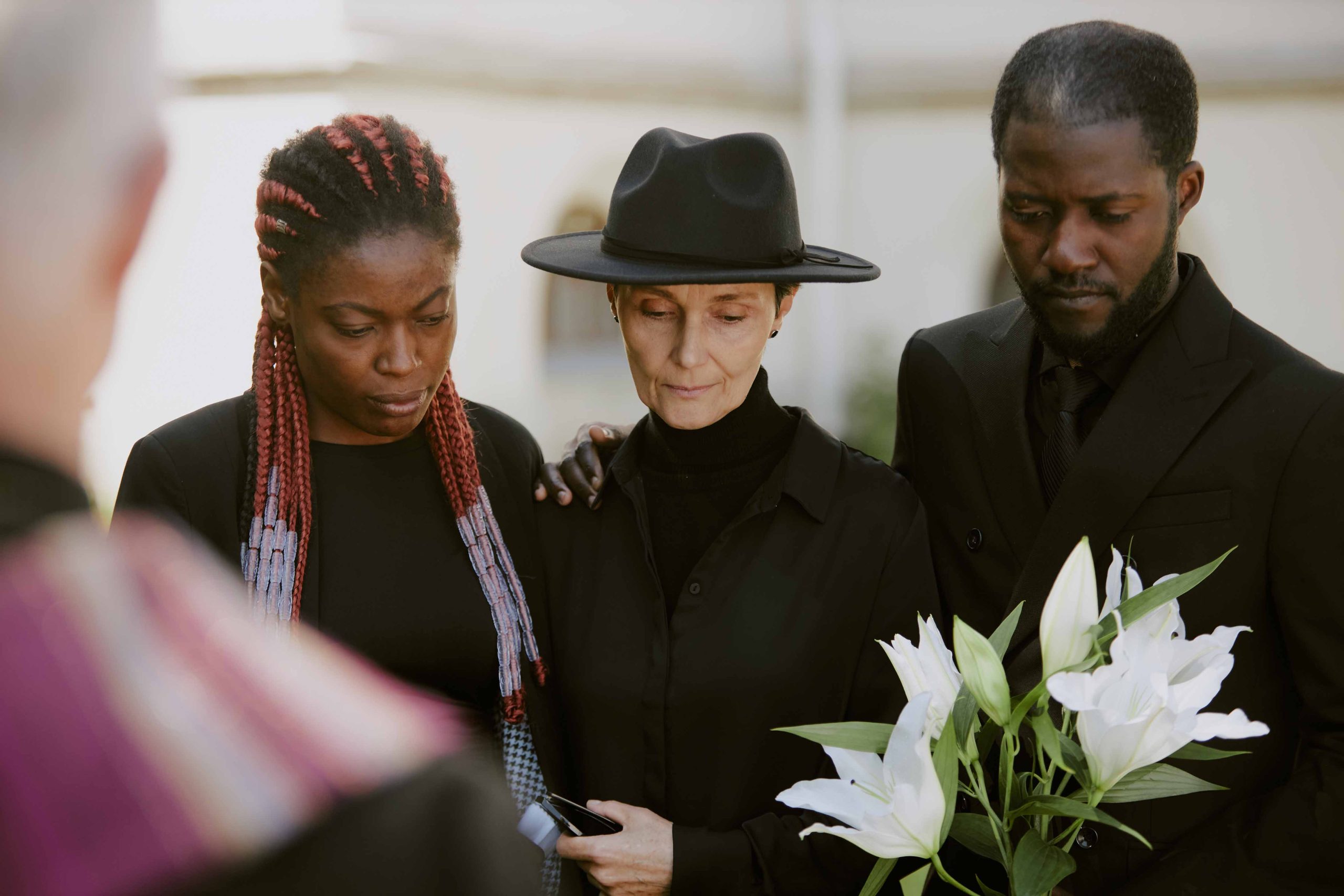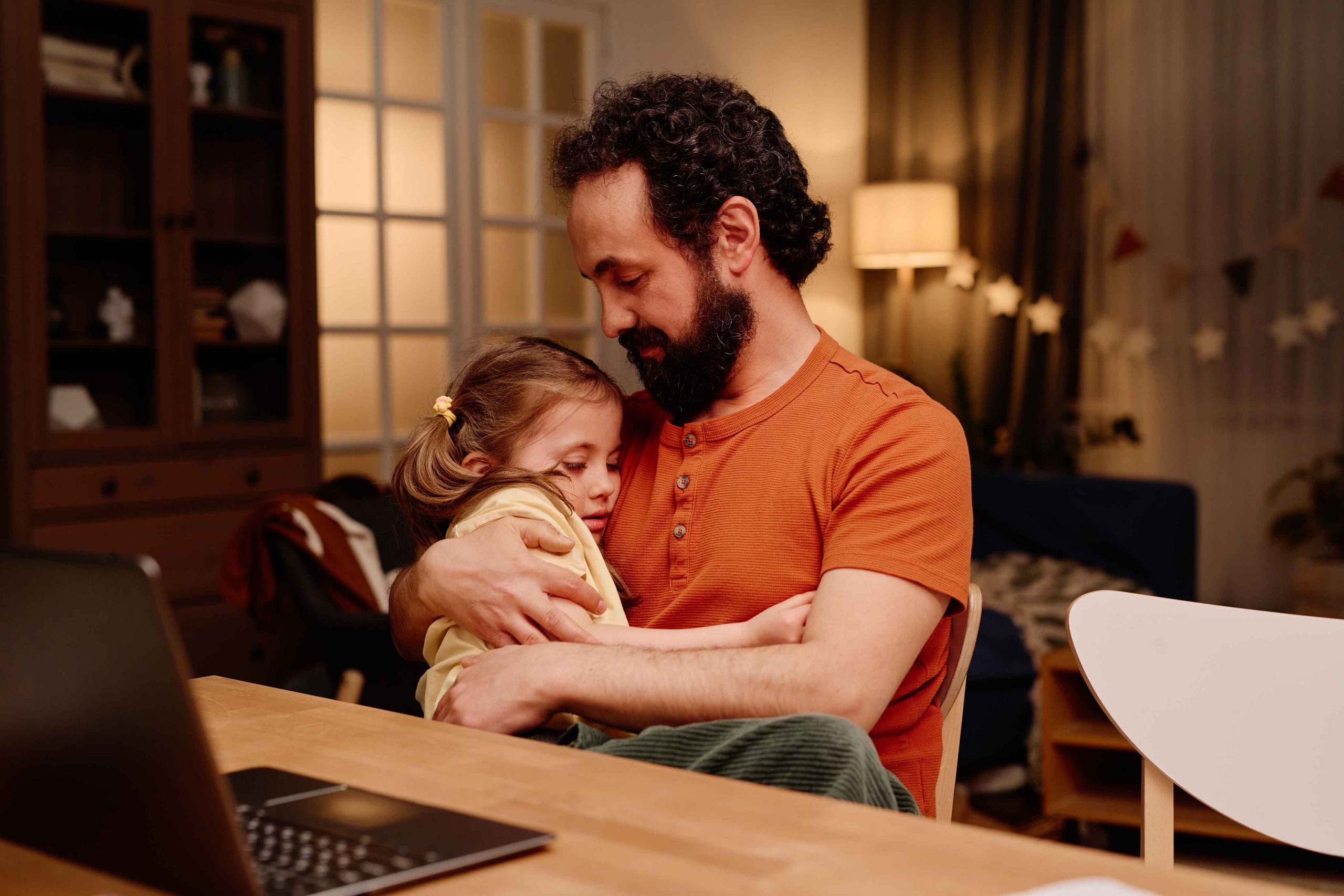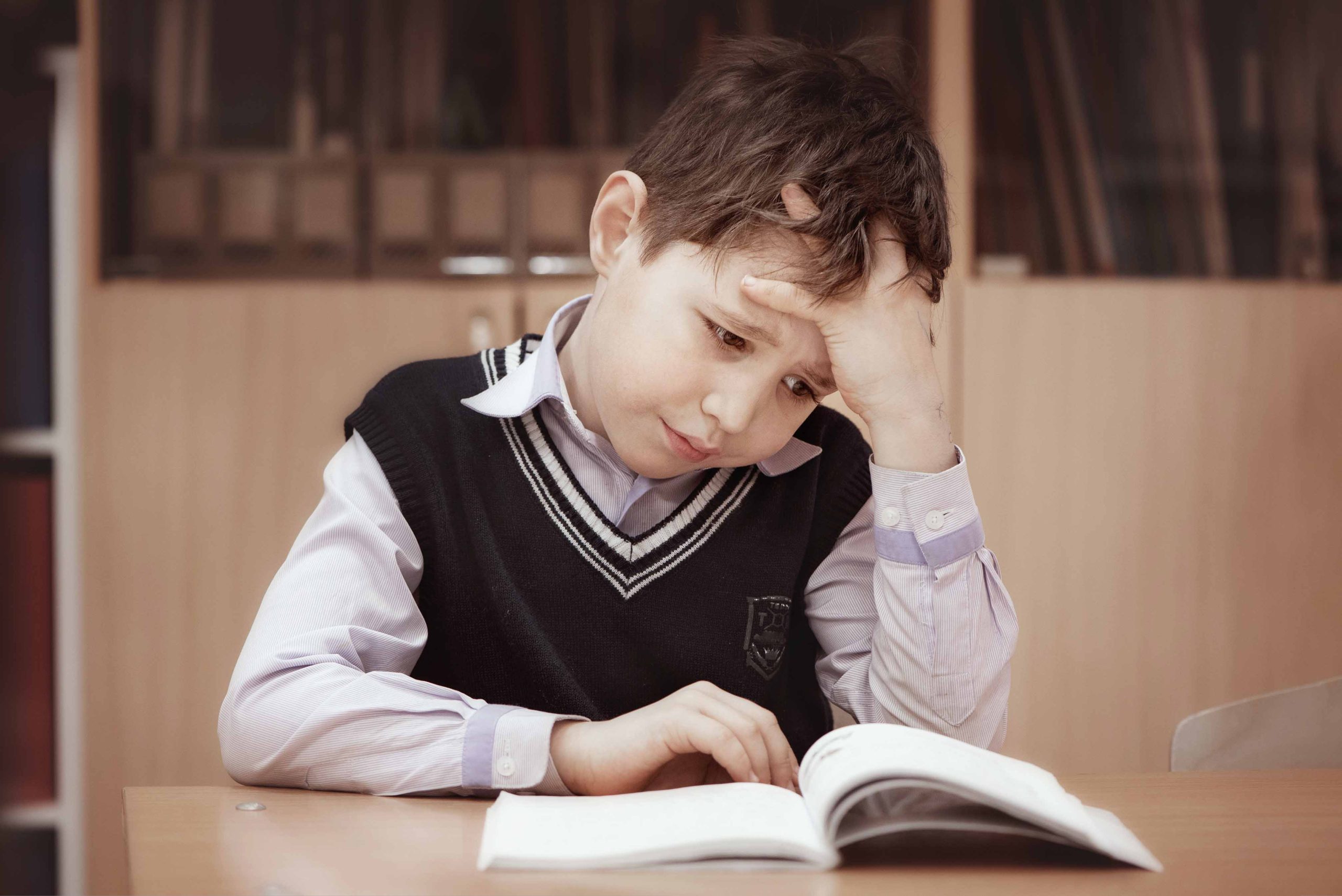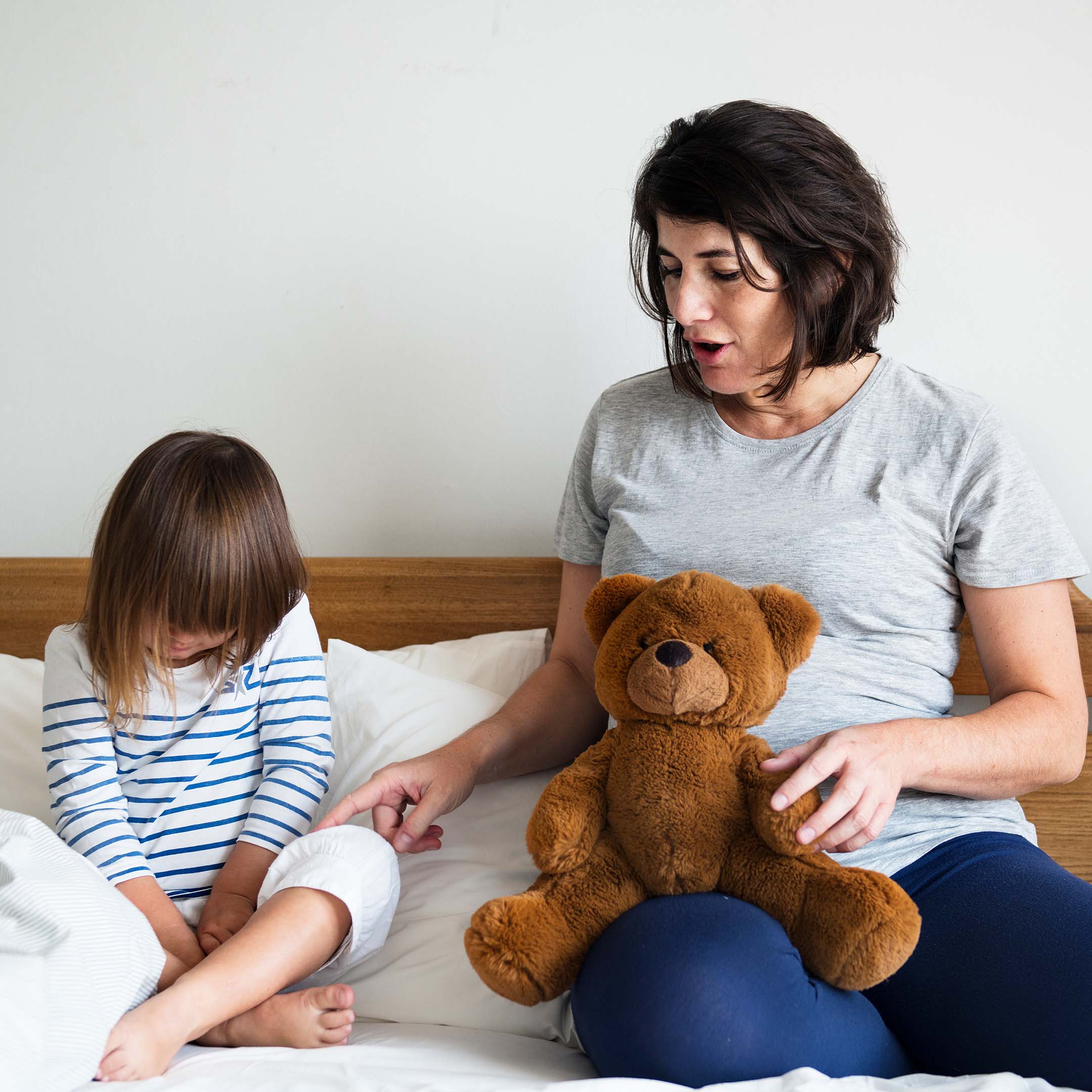How do I tell my child that they have lost someone?
To begin this article, the first point I would like to emphasize is that children DO experience grief processes. Just like any other human being, when they face a loss, they need to process it, make space for it, and adjust to a new reality. Some of the most common reasons a child might undergo a grieving process include the divorce of parents, the death of loved ones, the loss of pets, losing special possessions, or losing friends due to moving.
However, there are many myths surrounding the grieving processes in children and adolescents.
Myths Associated with Grieving Processes in Children and Adolescents:
- Children do not realize what is happening after a loss.
- Children and adolescents do NOT go through grief processes.
- Adults should hide their feelings; if they conceal their pain, children will be happier.
- They cannot understand and comprehend the social rituals associated with loss, so it’s better they don’t attend them.
- We should not be sad because then the deceased person will be sadder.
Once it is clarified that children go through grieving situations, it is important to note that children easily become aware of death. The concept of death has four characteristics:
- Irreversibility: The person who has died will not come back to life.
- Universality: All living beings die at some point.
- Non-functionality: The body stops functioning; all vital functions cease.
- Causality: There is a cause; death has an explanation and is a physical reason.
Depending on their developmental ages, children associate more or fewer characteristics with the concept of death. This is an aspect that should be considered when conveying information about the loss.

What Concept of Death Does My Child Have According to Their Age?
- Ages 0 to 2 years: They perceive death as absence. It is equivalent to leaving or abandonment. At this vital stage, they are very sensitive to the negative emotional states of their caregivers.
- Ages 3 to 6 years: They consider death to be temporary and reversible. This age is characterized by a strong presence of magical thinking. Additionally, they interpret any explanation literally, so it would be advisable to avoid metaphors such as "they have gone up" or "they left."
- Ages 6 to 9 years: At this age, they acquire the concept of irreversibility; they know that death is definitive and affects all living beings. However, they still do not grasp the concept of their own death.
- Ages 9 to 12 years: They understand that death is irreversible and universal. They also become aware of their own mortality. At this stage, it is expected that the fear of losing close loved ones will increase.
Therefore, it can be inferred that overprotecting children may not be the best help. Obviously, in most cases, adults make decisions regarding minors with their best interests in mind, with good intentions. However, although it may seem counterintuitive, hiding death can be worse. When children lack information, they fantasize, often leading them to imagine the worst possible situations or an incorrect reality. Additionally, when we don’t discuss the topic with them, we do not allow for emotional expression. Conversely, if we convey this information following a series of guidelines and using age-appropriate words, we will help ensure that the grieving process is healthy.
How Can Loss Affect Children?
Emotional Manifestations:
- Sadness and isolation
- Anxiety, irritability, and aggression
- Decreased self-esteem
- Regressive behaviors
- Difficulty in attention and concentration
- Hyperactivity
- Guilt
- Disbelief
Somatic Manifestations:
- Loss of appetite
- Insomnia
- Gastric or abdominal discomfort
- Exhaustion
- Shortness of breath
- Headaches
It is important to note that these symptoms, after consulting with a professional, cannot be explained by any other cause.
Social and/or School Manifestations:
- Social isolation
- School maladjustment
- Decreased academic performance
- Rejection of school
It is essential to point out that if these symptoms significantly impact the child’s life, it is advisable to seek professional help.
What Does My Child Need from Me Right Now?
In general, what children need from adults when facing a grieving process is:
- To use simple language appropriate for their age
- Not to overwhelm them with too many words
- Intuition to know when they are ready to talk
- An open mindset
- To listen and accept their feelings
- To be consistent; we as adults are also sad about the situation.
- Never to lie

What Can I Do According to My Child's Age to Facilitate Understanding of Death?
Children Aged 0-2 Years:
In this developmental stage, it would be very helpful to maintain the routines that were in place before the loss of the loved one. Additionally, anticipating death and ensuring their health and care would also help. Conversely, if routines are disrupted, with abrupt and rapid changes, or if new caregivers who are not well-known are introduced, these could hinder the child’s adjustment to the new situation.
One should be alert if there are significant weight losses, if the child cannot be comforted, or if sleep patterns do not recover.
Children Aged 3-6 Years:
At these ages, it is recommended to use clear and adapted language, to reassure them about the possibility of other deaths, and to help them understand post-mortem insensitivity. Nature examples or those they already know can also be used to aid their comprehension. On the other hand, metaphors such as «they are in a better place,» «they always watch us and take care of us,» or «they sleep eternally» should be avoided. We must remember that at this stage, there is a very literal understanding of language, so they will interpret it as we explain it. Additionally, complex explanations should also be avoided.
One should be alert if there is significant separation anxiety, recurrent nightmares, refusal to eat, lack of interest in play, or debilitating fears.
Children Aged 6-10 Years:
When children are in this age range, it is advisable for adults to explain things to them and allow them to participate in rituals. Adults should answer their questions and curiosities, provide an environment that allows emotional expression, and help them understand the dimensions of death. If the loss is expected, it is a good age to prepare them in advance. Additionally, between ages 9 and 10, it would be wise to consider their opinions.
Conversely, it is important to avoid not clarifying their imagined theories, not explaining what rituals are or what they will encounter, and withholding details about the death.
When discussing the details of the death, always ensure that all data and information is adapted to the children’s age.
One should be alert if high anxiety, depression, an inability to separate from attachment figures for fear of their death, or performance issues are observed.
Children Aged 10-13 Years:
Behaviors that facilitate the grieving process at these ages include teaching them to value memories, sharing adult experiences with them, normalizing what they feel, requesting their help in farewell rituals, and sharing feelings and emotions. Conversely, behaviors that could hinder grieving processes would be overwhelming them with too many questions, not respecting their privacy, and using phrases that hinder emotional expression, such as «Don’t feel sad.»
During these ages, it is essential to be alert for signs of extreme sadness, excessive responsibility, isolation, insensitivity, somatization, or inability to readjust to school.

Adolescents:
At this developmental stage, allowing them to feel like active participants in the process, valuing their opinions, avoiding messages of strength or responsibility, and attempting to minimize changes are actions adults can take to facilitate the process. On the contrary, overloading them with adult responsibilities, delaying communication of the news, not allowing them to participate in events, prioritizing others, or bombarding them with too many personal examples are behaviors that could hinder the grieving process.
In this case, the signs to watch for include increased substance use, extreme isolation, recurrent thoughts about death, extreme irritability, persistent mood swings, blaming the person who communicated the news for the death, separation anxiety, obsessive or somatic disorders, depressive symptoms, and suicidal ideation or planning.
Finally, it is important to emphasize that the unique characteristics of each culture, the child’s personality, and each family’s beliefs should also be taken into account. This article provides a guide to the most common manifestations, but this does not imply that others cannot exist. For this reason, in cases of doubt, it is advisable to consult a professional.
In summary, it is essential to recognize that children and adolescents go through grief processes when facing a loss. Therefore, it is crucial to understand how we can better manage these situations. The goal is not to overprotect, but to be consistent, empathetic, and honest, communicating information in a simple manner appropriate for the child’s age. Ultimately, grief is a natural and expected process following a loss; not all grief needs to be pathological. However, if any warning signs are observed or if it interferes with the child’s life, do not hesitate to consult a professional.
About the author
Laura Redondo Fidalgo is a Clinical Psychologist and Neuropsychologist at Sinews. She works with a wide range of issues, including anxiety, depression, grief, self-esteem, and interpersonal relationship problems, among others. Her approach is cognitive-behavioral, but she also incorporates tools and techniques from other modalities, such as Third Generation Therapies, adapting to the specific needs of each patient, thanks to her continuous training.
Division of Psychology, Psychotherapy and Coaching
Psychologist
Children, adolescents and adults
Languages: English and Spanish
Miscarriage and Perinatal Grief: You Are Not Alone
Grief is defined as the emotional response to the significant loss of something or someone important in your life. It is the process a person undergoes to overcome and adapt to such a loss. There are many types of grief, among which we find disenfranchised grief. This type of grief occurs when society does not recognize the loss of a third party or does not allow the bereaved to express it. It seems unbelievable, doesn’t it? In what situations do you think this type of grief could occur?
One of the experiences in which this occurs is in perinatal grief. Perinatal loss is defined as the loss of a baby by a pregnant person from the time pregnancy is known until the first month of the baby’s life. One of the most common causes of perinatal loss is miscarriage. Miscarriage is defined as the premature loss of the baby during the first 23 weeks of pregnancy. Within miscarriage, there is (1) early miscarriage, which occurs from conception to the thirteenth week of pregnancy, and (2) late miscarriage, which occurs from the fourteenth week to the twenty-third week.
According to statistics, it is estimated that the risk of miscarriage in pregnant people is 25%. It is even believed that this percentage could be higher, as many losses occur before the person is aware of their pregnancy. Twenty-five percent means that 1 in 4 pregnant individuals will lose their baby spontaneously. That is, if you have a group of 10 people and they all become pregnant, it is most likely that at least 2 will lose their baby. Shocking, isn’t it?

The Dreaded Phrase “Me Too”
Miscarriage is a taboo subject; many people have experienced it but have not communicated their loss. It is only when someone brings up the topic that many others are encouraged to talk about it. But why is something so painful taboo? There are several reasons why this happens:
- Miscarriage Grief is Not Socially Accepted: The person’s circle expects less suffering.
- No Funeral Rituals: This creates the feeling that the loss should not be mourned.
- The First Trimester Rule: Pregnant individuals often wait until the third month of gestation to announce their pregnancy. Thus, when miscarriages occur during this period, the environment is unaware, making them feel more alone, isolated, and unsupported.
- Medical Desensitization: Since it is not a life-threatening situation nor one with a solution.
- Lack of Understanding: As explained by the Theory of Ambiguity, is one of the most influential factors in the grief process.
- Dissatisfaction with Treatment and Lack of Preparedness: By healthcare professionals to address the issue.
The Consequences of Miscarriage
It is not difficult to put oneself in the shoes of someone who has had to live through this experience. The loss of an expected baby can be considered a traumatic event, becoming one of the most painful life experiences for parents. Therefore, the psychological consequences are many and varied:
- Anxiety symptoms
- Depressive symptoms
- Post-traumatic stress
- Intense emotions of grief, guilt, anger, and shame
- Isolation
- Stigmatization
- The feeling of “empty arms”
- Natural grief processes
- Complicated grief processes

Expected Grief
Grief is a necessary process to go through to integrate our losses. According to theorists like Worden, there are several tasks you need to accomplish in the face of a loss:
- Accept the reality
- Work through the emotions and experience the pain
- Adapt to a world without the loved one
- Reposition and remember the loved one
The emotions we go through during grief are not comfortable, but that doesn’t mean they are negative or unnecessary. On the contrary, no matter how much we want to «get rid of them,» they will help us heal. Therefore, experiencing them does not imply a problem. However, in some cases, the experience can become complicated, and it is advisable to seek professional help.
How Can I Identify If I Am Experiencing Complicated Grief?
According to the ICD-11, the following criteria may indicate that you are experiencing prolonged grief:
- Separation distress: longing for the lost person and/or intense feelings of emotional pain, sorrow, or distress present daily and intensely.
- Confusion about one’s role in life or a diminished sense of self.
- Difficulty accepting the loss.
- Avoidance of reminders of the reality of the loss.
- Inability to trust others since the loss.
- Bitterness or anger related to the loss.
- Difficulty moving on with life (e.g., making new friends and pursuing interests).
- Emotional numbness since the loss.
- Feeling that life is unfulfilling, empty, or meaningless since the loss.
- Feeling stunned, dazed, or shocked by the loss.
When these symptoms appear and (1) at least six months have passed since the loss and (2) the mentioned symptoms are clinically and significantly disrupting the person’s daily life, both socially and occupationally, it is recommended to seek professional help.

Therapy Can Help
Whether experiencing expected or complicated grief, therapy is a place of validation and psychological support. Moreover, having gone through an experience that remains a taboo topic in society, therapy provides a space that acknowledges this social reality.
Although grief is a natural reaction, it is an idiosyncratic phenomenon and should be considered with the personal and contextual characteristics of each individual. Therapeutic approaches such as Cognitive Behavioral Therapy or Acceptance and Commitment Therapy could help navigate these processes.
Finally, I would like to emphasize that perinatal grief due to miscarriage is a profoundly painful experience that deserves to be recognized and validated both personally and socially. Despite being a taboo subject, it is essential to know that you are not alone in your pain and that you have the right to express your emotions and receive support. The lack of recognition and social prejudice can intensify your suffering, making it crucial to foster an environment of empathy and understanding. There is no need to go through this alone, pretending nothing happened; share it with someone you trust. And if it doesn’t go well, there will always be professionals who can offer you a safe space to process your loss. By acknowledging the validity of your grief, we can begin to break the silence and provide the necessary support to navigate this difficult experience.
About the author
Laura Redondo Fidalgo is a Clinical Psychologist and Neuropsychologist at Sinews. She works with a wide range of issues, including anxiety, depression, grief, self-esteem, and interpersonal relationship problems, among others. Her approach is cognitive-behavioral, but she also incorporates tools and techniques from other modalities, such as Third Generation Therapies, adapting to the specific needs of each patient, thanks to her continuous training.
Division of Psychology, Psychotherapy and Coaching
Psychologist
Children, adolescents and adults
Languages: English and Spanish



